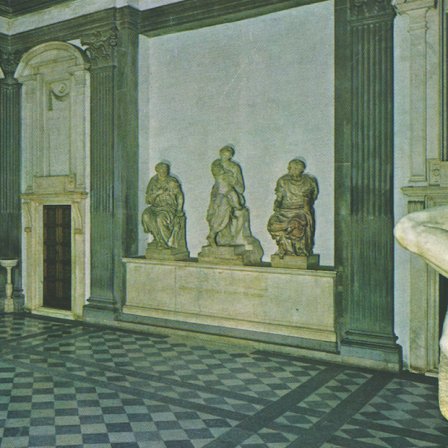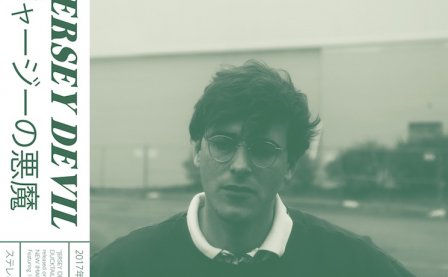What seemed half a decade ago to be Matt Mondanile’s lo-fi, lo-stakes respite from his duty as formidably chill lead guitarist in Real Estate, Ducktails has since become Mondanile’s primary vehicle for his now decidedly un-lo-fi pop statements. St. Catherine is his latest album, and it’s also his most personal and consistent release yet, seeing Mondanile moving away from that herd of similar musicians (all rapidly aging into something or other [ah, to relive the advent of hypnagogic pop]) into a niche occupied by few.
St. Catherine begins with “The Disney Afternoon,” a soft, simple, orchestral instrumental piece that’s reminiscent (“to reminisce,” in all of its textures, is the most active verb on the album) of Brian Wilson’s arrangements on Pet Sounds. We find another instrumental piece, “Krumme Lanke,” toward the album’s end, forming a dyad that, intentional or not, further brings The Beach Boys’ masterpiece to mind (see “Let’s Go Away For Awhile” and “Pet Sounds”).
With some detours, the album follows the aesthetic established on that first song: St. Catherine is light, which is not to say lite, but loosely ecstatic, never losing its cohesion, like a blue sky sometimes segmented by clouds of various sorts — some religious wonder here, some quotidian lucidity there. The album’s wandering mind finds unity through the combination of Mondanile’s strengthened compositional skill and an extra production credit from Elliott Smith co-producer Rob Schnapf, the latter of whom is joyously impossible to unhear.
That aforementioned everyday lucidity is most evident on “Headbanging in The Mirror,” the first song on the album to feature vocals and therefore a sort of reintroduction into the album’s world, as well as “The Laughing Woman,” a portrait of contemporary love-as-pain. Mondanile’s lyrics on these songs are almost elementary: from the former, “Headbanging in the mirror/ Wish I could see so much clearer,” or from the latter, “Can you stop thinking life’s a joke/ When you know everybody hurts?/ Pretending everything’s just fine/ Leaving your dignity behind.” The bald simplicity of the lyrics might elsewhere feel like an intellectual’s approximation of infectious retro pop lines, but on St. Catherine (and especially alongside its more impressionistic, religious songs), they feel more like pieces of language and wisdom pulled in on a greater, faded, pleasant tide.
A darkness briefly appears as “Into the Sky,” a sort of unthreatening fog blocking out the otherwise white-and-blue expanses of the album, featuring a wash of synth strings and the album’s most serious guitar line. It’s worth noting that a song of memory and skyward wonder is the album’s most aesthetically and emotionally enclaved, especially with Catholicism and faith playing such a large role in some of the album’s best songs. “St. Catherine,” as light and pretty a track as any other on the record, calls to mind, with Mondanile’s near-falsetto and reverent lyrics, the obscure, religious pop of Fanuelle, while “Heaven’s Room” and “Church” (the former of which returns at the album’s end as a memory of a memory, “Reprise”) — both gorgeously featuring Julia Holter — get as close to pinpointing the emotion produced by rekindled religious faith as anything recently recorded in independent music.
Chris Cohen’s Overgrown Path may be the only contemporary album that can claim as well as St. Catherine such mastery equally over both lightness and airy, religious lyricism. Both albums feel too brief, like a shape glimpsed in a cloud gone before a friend could entirely make it out, but both know not to overstay the brief welcome afforded by such romanticism. Like a daydream, St. Catherine is to be savored while it lasts, then let go until another day.
More about: Ducktails, Matt Mondanile




